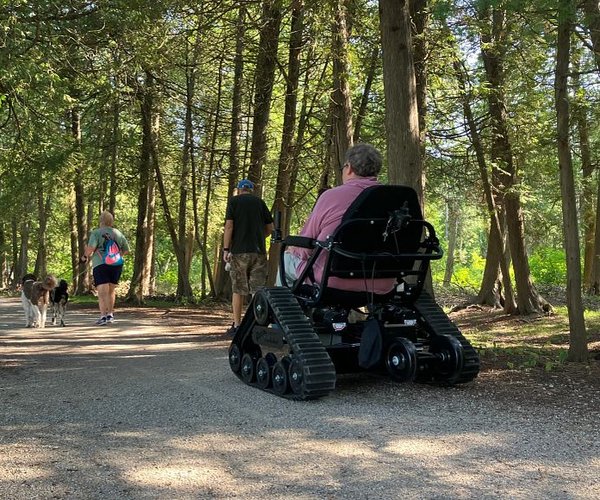MONROE — The Friends of the Badger and Sugar River Trails will be selling annual Wisconsin trail passes at the Bike Haus and Monroe Public Library. These passes cost $25 and are valid until Dec. 31, 2023.
A state trail pass is required for all people age 16 or older biking, cross-country skiing, horseback riding or in-line skating on certain trails. A state trail pass is not required for walking or hiking. Wisconsin state trail pass fees are the same for residents and non-residents. The annual pass is good for the calendar year and the daily pass is good for the day of purchase.
WHICH TRAILS REQUIRE A STATE TRAIL PASS?
A state trail pass is required on certain trails that allow biking, horseback riding, cross-country skiing, in-line skating and off-highway motorcycling. These trails are in state parks, forests and recreation areas and are also stand-alone state trails. Signs are posted at trailheads on the trails that require a state trail pass. County and local trails in Wisconsin may have their fees and state trail passes are not valid at those trails.
Please remember a vehicle admission sticker is required on all motor vehicles stopping in state parks, forests and recreation areas.
WHY DO THESE TRAILS REQUIRE A STATE TRAIL PASS?
They were selected by DNR staff for a variety of reasons, including the quality of experience they offer, their popularity, their maintenance costs and the DNR’s ability to enforce the requirement in these locations.
WHERE DOES THE STATE TRAIL PASS MONEY GO?
Money from the sale of state trail passes is deposited into the parks segregated account of the state Conservation Fund. The trail fee revenues are used for maintaining and operating state trails, parks and recreation areas. For trails, these costs include such things as dealing with erosion, trash removal, maintaining safe surfaces, trimming brush, removing fallen trees and law enforcement. Additional funds, which come from ATV and snowmobile registration fees, are allotted to trails that allow ATVs and snowmobiles.
In 2019 the state collected a total of about $1.4 million for state trail passes (previous recent years have ranged from $1.3 to $1.5 million in revenues with about 80 percent coming from annual passes and 20 percent from daily passes). The revenue generated by the state trail pass does not cover expenses for the trails for which it is charged. For example, the average revenue for state-operated state trails was $29,711 in 2014. At the same time, the average expenses for each trail were $69,811. The difference in the amount required to operate a state trail and the money received from the sale of state trail passes is covered by monies from the separate Wisconsin State Park System account which includes funds from state park admission stickers and camping fees.
WHY DON’T SNOWMOBILERS, ATV RIDERS, OFF-HIGHWAY MOTORCYCLES AND HIKERS NEED STATE TRAIL PASSES?
Snowmobilers, all-terrain vehicles and off-highway motorcycle riders pay for their trails through registration fees and gasoline taxes. Every state trail that allows ATV or snowmobile use receives some of this money. Wisconsin law requires those who use Wisconsin ATV, OHM or snowmobile trails to display either Wisconsin registration or an ATV or snowmobile trail pass. ATV and snowmobile trail passes are different from the state trail pass and are available through the DNR’s licensing system.
In general, bike, ski and horse trails are more expensive to maintain than hiking trails. Also, the exemption for pedestrians (which include snowshoers) enables everyone access to Wisconsin trails.
WHAT IF I DON’T HAVE A STATE TRAIL PASS?
Trail users must purchase their state trail pass before using the trail. Self-registration stations are available for payment of fees when the office is closed. There is a $5 fee (in addition to the cost of the state trail pass) for anyone who fails to pay for a pass before using the trail. If a trail user refuses to buy a pass or self-register, a citation can be issued.
HOW LONG HAS THERE BEEN A STATE TRAIL PASS?
Since January 1994, the state trail pass has been required for certain off-road (mountain) bike, horse and cross-country ski trails, as well as trails used by in-line skaters and off-highway motorcyclists. Cyclists on railroad-grade trails have been charged a fee since 1978.
WHO CREATED THE STATE TRAIL PASS?
Wisconsin State Statute 27.01(8) [exit DNR] authorizes the establishment of the state trail pass. With statutory authority, the current state trail pass was approved by the Natural Resources Board in 1993 with the support of many user groups. The pass was created to raise much-needed trail maintenance funds. The state trail pass complies with the State Trails Strategic Plan, completed in 1992 after comments from user group leaders and many other people around the state. The Department of Natural Resources also conducted surveys and focus group discussions with trail users and consulted the State Trails Council before recommending the fees. Wisconsin State Statute 27.01(8)(c) [exit DNR] establishes the cost of the state trail pass.




